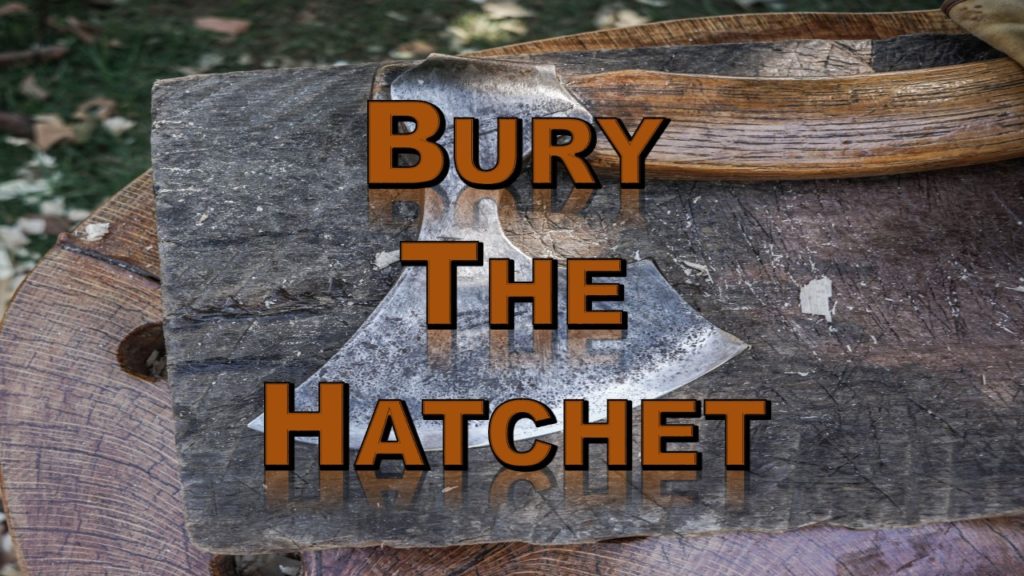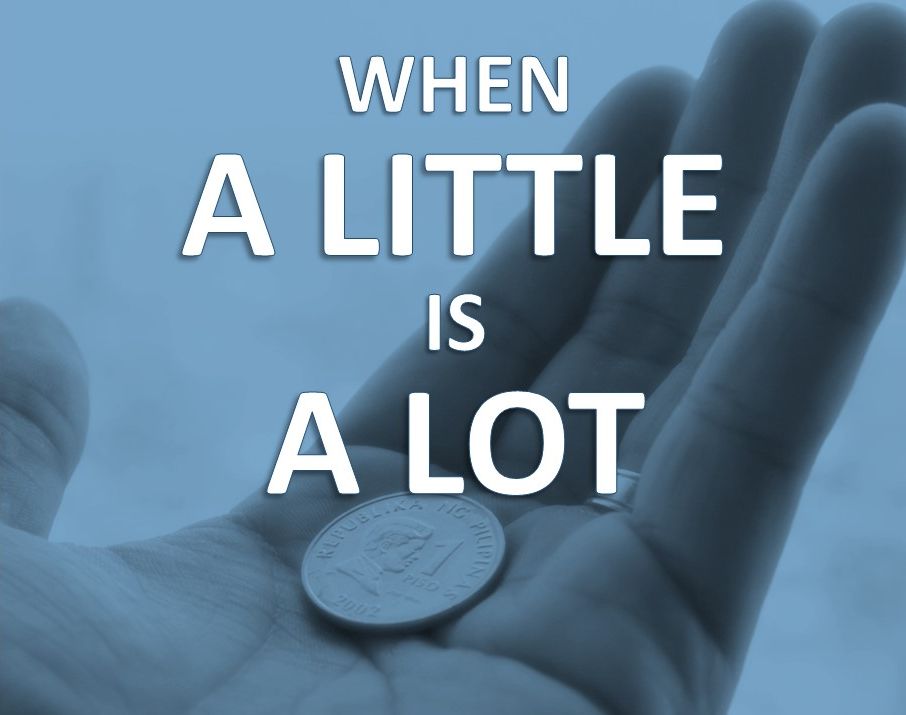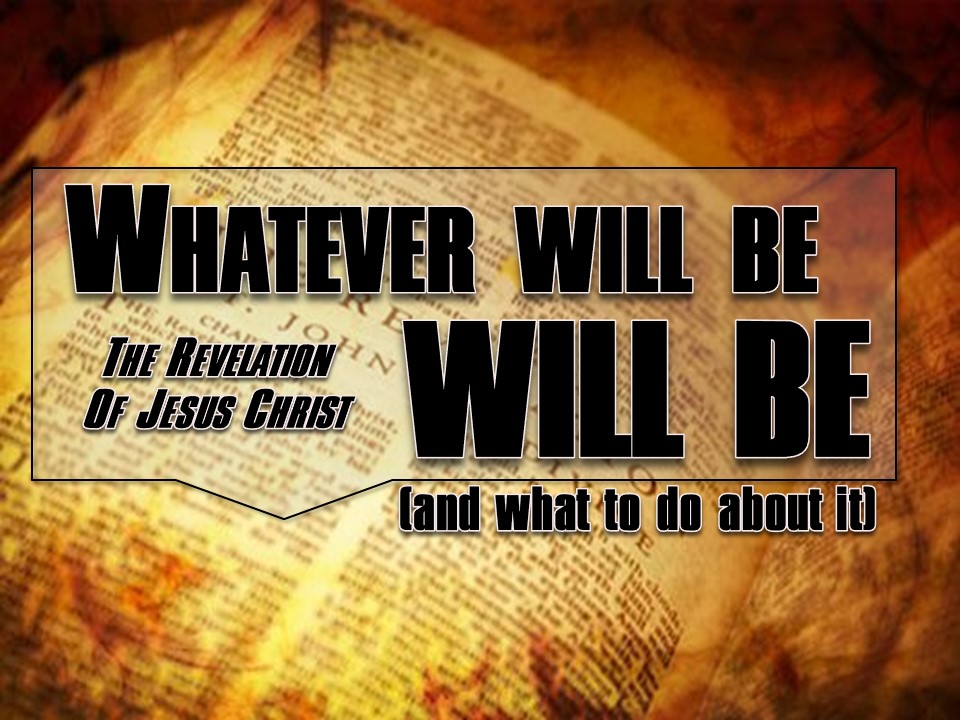 Have you ever been hurt by someone?
Have you ever been hurt by someone?
Maybe it happened recently, or maybe it was decades ago…but you just haven’t been able to forget about it. The memory causes you to seethe inwardly. You know it’s not right, but you don’t know what to do about it. Is there any way to break free?
You’re in luck, and a little history lesson will set you on the path to healing.
Long before European settlers made their journey to this country, Native Americans roamed the prairies and woods of what would one day become the United States. Divided into tribes and devoid of a common government, the tribes often fought against each other.
Occasionally two tribes would find common ground and declare a truce. To solemnize the peace treaty, the tribal leaders would bury a hatchet, symbolizing the mutual agreement to no longer use their weapons against each other.
From this ritual we get our phrase “bury the hatchet,” which we use to describe the process of forgiveness. It is as if we say, “Regardless of how much we can’t stand each other, we will put our differences behind us.”
While we may no longer hike into the woods to engage in the burial of an axe or a tomahawk with our sworn enemies, many of us may still need to “bury the hatchet.”
Maybe a malicious acquaintance hurled an insult in your direction. Maybe you were unjustly fired from a job or overlooked for a promotion. Whatever it was, you were hurt. And while you don’t like to think of it this way, you are holding a grudge.
Deep inside, you would like to “let it go” (my apologies to Elsa), but you know it’s not that easy. How exactly does one “bury the hatchet?”
Fortunately, we find an answer in the Bible. It’s not easy, though. The ground where we need to bury the hatchet is dense and dry. It is, however, possible.
Carrying grudges is nothing new. In fact, Paul had to deal with that in Corinth. He did not, however, go into detail about how to forgive. He just simply asked a couple questions.
Why do you not rather accept wrong? Why do you not rather let yourselves be cheated? (1 Corinthians 6:7)
Good questions. How would you answer them?
In keeping with Paul’s spirit of asking questions, we will ask three questions, and if we give them good answers, we will be well on our way to burying the hatchet.
The first question comes straight from Paul.
Why do I not accept wrong?
So someone hurt you. Why do you hold so tightly to the hatchet?
“Well, he never asked for forgiveness!”
So? That doesn’t answer the question. The question is why do you not just accept it and move on.
Regardless of your answer, it can be summed up in one word: pride. “No one’s going to push me around!” “If you hurt me, you’ll pay for it!”
I’m not sure Paul would have liked that answer.
Once we recognize our own fault in our refusal to forgive, it’s time to move on to the next question. Just how do I do it?
How can I forgive?
Maybe you don’t feel like forgiving. Does anyone? But remember this: forgiveness is not a feeling. It is an action. It is a choice.
Let me give you a few steps to help you forgive:
Step 1: Realize that you will get hurt
Don’t get a martyr complex. It happens to everyone. Someone is going to do something that steps on your pride, and you’re going to feel hurt. Get used to it.
Step 2: Recognize that there is a fault
Forgiveness is not just saying “It’s OK.” It’s not OK. That’s why you hurt. If it was OK, there would be no need to forgive, right? You were hurt, but you decide to let it go. That’s forgiveness.
Step 3: Remove the consequences
This is where it really gets tough. We make the decision not to hold the grudge any more. We no longer bring it up in conversation. It’s over. It’s buried. It’s forgiven.
Now, let’s ask the final question:
When should I forgive?
The answer to this question is easy, although in practice it is hard. Let’s sum it up in four statements:
Forgive when it is difficult.
Isn’t it always difficult? If it is easy, it might be unnecessary.
Forgive when it is undeserved.
Forgiveness is never deserved. After all, forgiveness is necessary because one person has wronged another.
Forgive when it is unrequested.
We can forgive even when someone doesn’t ask for it. If we’re holding out for an apology, are we truly ready to offer forgiveness?
Forgive when it is costly.
Think about this for a minute. It is costly to forgive. After all, when a debt is forgiven, someone has to pay it, right? When you forgive, you pay the debt the other person owes to you. You’re left holding the bag.
When you forgive someone, you will come up short. You have transferred the debt from the other person’s hands to yours. No, it’s not fair, but that’s what forgiveness is all about. Remember what Jesus did? He paid our debt so we could be forgiven. Someone had to be punished: we deserved it, He took it.
That definitely wasn’t fair, but it is the supreme model of forgiveness; a model we should follow. As Paul commanded the church in Colossae: if anyone has a complaint against another; even as Christ forgave you, so you also must do. (Colossians 3:12-13).
We are to forgive each other not because they deserve it, but because God forgave us.
So, you can forgive anyone for anything. You don’t have to feel like it and you don’t even have to like it. Just bury the hatchet. And forget where you buried it.



